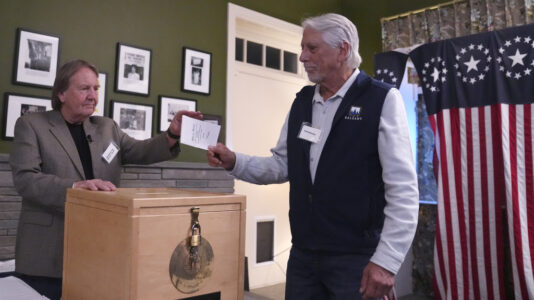Rasmus Paludan, a hard-right politician and provocative anti-Islam activist, has been sentenced to four months in a Swedish prison for inciting hatred during two controversial protests in 2022 where he burned copies of the Quran and made inflammatory remarks about Muslims.
The Danish-Swedish lawyer was sentenced by Malmö District Court on Tuesday for incitement against an ethnic group, with the court ruling that Paludan’s actions went beyond legitimate political criticism, concluding that his statements were designed to “defame and offend” Muslims rather than engage in any genuine debate.
The court’s chief judge, Nicklas Söderberg, emphasized that while public criticism of religious groups is permissible under Swedish law, Paludan’s behavior — such as burning a bacon-wrapped Quran, kicking it, and making derogatory remarks about the Prophet Muhammad — crossed the line into hate speech.
“This was not about engaging in any form of critical discussion,” Söderberg stated. “His actions were intended solely to insult and provoke.”
Swedish law protecting free speech and debate does not mean you can “talk for three hours about the prophet Muhammad’s made-up sex habits and wrap a Koran in bacon, play football on it, spit on it, make fun of yourself in it,” he added.
Paludan, the founder of the Danish hard-right party Stram Kurs, has denied the charges and confirmed that he intends to appeal following the court’s decision.
He argued that his demonstrations were political and aimed at criticizing Islam as a religion, not targeting Muslims as a group. He maintains that the court misinterpreted his statements.
The protests in question took place in April and September 2022 in Malmö, where Paludan’s Quran burnings made numerous headlines and provoked the increasing Muslim community across Sweden.
Paludan continued his demonstrations in 2023, staging further Quran burnings, which have been cited as one of the reasons for Turkey’s delay in approving Sweden’s accession to NATO.
Turkish officials and those from other Islamic nations expressed their outrage over Sweden’s handling of such incidents, accusing the country of not doing enough to curb anti-Muslim activities.
Livestreams of the demonstrations were used as evidence at the trial to show Paludan was aware his actions were being broadcast to a wider audience, a move the court ruled was intended to incite others.
Despite the activist claiming not to be aware that the protests were being posted on Facebook, Söderberg told the court, “There are a number of circumstances which show that the videos were published with his consent. He asks the person filming the videos how many viewers they have, for example.”
Paludan has said the court ruling effectively ends his ambition to pursue a political career. “If the verdict stands, I won’t be able to continue as a candidate for the Riksdag,” he said. “It’s too dangerous because I risk being judged not for what I said, but for how others interpret it.”
Prosecutor Adrien Combier-Hogg expressed his content with the verdict but had hoped for a longer sentence.
“This judgment clarifies the line between freedom of expression and incitement against an ethnic group,” he stated.






